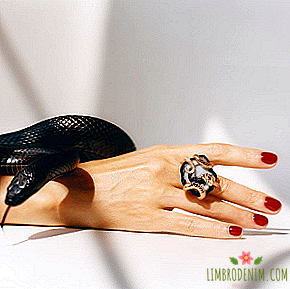Cheaters Stamp: Snowboarder Alena Zavarzina on Doping and Career
IN THE END OF AUGUST IN RUSSIAN SPORT A LARGE SCANDAL DISAPPEARED. Several snowboarders, on condition of anonymity, told the Sport-Express publication that the Russian Snowboard Federation (FSR) is in conflict with leading athletes who have not paid their salaries for months and cannot provide adequate conditions for training. An example was the case of Ilya Vityugov, who in 2017 won the junior world championship "on a broken board, which he bought from his own hands in his region."
The world champion in slopestyle Sofya Fedorova followed, accusing the FSR of blackmail: “I was told that now I have to be in the top five World Cup. . The conflict with the federation was confirmed by the participants of the Olympic Games Ekaterina Tudegesheva (who called the events “a drain of the national team leaders”) and Alyona Zavarzina, who soon decided to end her career.
We talked with Alena to find out whether the current situation in Russian snowboarding is really “internal difficulties” of coaches, athletes and officials of the federation, as representatives of the Olympic Committee are trying to present, or it is something more. And at the same time we learned what it is to be a Russian Olympic athlete in general - before and after Sochi 2014.
About dream
When I was little, I watched the Sydney Olympics in 2000. And I remember the emotions that I experienced when I watched Svetlana Khorkina, Alina Kabaeva and Alexei Nemov, Alexander Popov perform. I fell in love with them. I wanted to be there in the arena, surrounded by blue banners and Olympic rings. I had a burning desire to go to the Olympics, no matter what the cost. When I went to the Games for the first time in 2010, I was breathtaking when we went to the stadium under the spotlights and camera flashes.
On the day of the start, I put on a number with rings and realized that this was the moment I had dreamed of all my life. I could not believe that the whole world - at least everyone I know at home - is now looking at my race. It was scary and exciting at the same time.
I will always remember those moments when the hall was noisy, when Nemov was placed in second place with an obviously better performance. I remember the face of Svetlana Khorkina before her performance on the beam. They are for me forever infinitely cool.
I hope that my performances will also charge and inspire someone so much. There are very few moments in life that I want to remember. And their victory on the highest stage, their complete composure, these eyes of a man who is completely at ease, is the best that can be seen on TV.
On the systemic crisis in the Russian sport
Athletes have to listen to a lot of criticism: "What are you whining?" But the one who knows how much energy athletes spend and under what stress they are constantly residing will not argue with the fact that they certainly have the right to get an elementary salary for their work. "Zavarzina on emotions ends his career." And why not? Why I do not have the right to speak with passion about the main business of my life? I am very a fan of sports and for Russia. And I think that there is no “hysteria” here - I, like any person from the national team, have the right to get what we are supposed to by the law.
They demand from us to be the best in the world, but they do not want to give the best training conditions in the world. Compare your training with the training of your rivals who win the competition, and think about what is missing here. You can do so, and not take a subscription from a person with guarantees to take a prize. The highest demands on themselves from the athletes themselves. And the federation, instead of squeezing even more, could ask itself whether they themselves are one hundred percent working.
At the end of last season, I had already decided to end my career, but then I decided to stay until the World Cup to play in America. Then the ministry of sports "helped" me to finally leave, because the situation with non-payment of salary: I was not something that did not pay - I just did not put in the contract. For a whole year I was not employed, and they forgot to let me know about it. There was a hope that when I asked the leaders of the federation to pay attention to this, they would correct the mistake. I thought I was not indifferent to them. It turned out that they could not do anything, and literally until last week this issue was not solved at all. After my meeting with the Minister of Sports, he gave instructions to immediately solve the problem, but to date, nothing has changed.
This is a systemic crisis, and I do not want to shift the blame only on the SDF, although each of us can work more efficiently. For four years we have been waiting for progress. But since budget funds are limited, and lately they are running out at all, they are simply not enough for all athletes. Many are switching to regional funding, and at some point they also wanted to transfer to it.
The problem is that the federation has not established contact with the athletes: I recently found out that athletes should not directly contact the leadership. But I believe that any federation exists in order to serve athletes. We are not for officials, but they are for us.
Good athletes can be counted on the fingers: we do not stand in line, we are not born on schedule. It is hard to grow a quality athlete - one that will rise after a fall, setback, injury, and go up again. See how many athletes we have lost in recent years due to the fact that they were not given adequate support. In cross-country skiing, in biathlon. I am not talking about myself - I do not want to speak for another country, although many people ask me about it. But it happens everywhere.
And if there is a misunderstanding with the federation, we simply have no choice but to finish our career and do something else to find solid ground under our feet. Russian sport is our only job. We can not leave from one company to another, if the first does not suit us. Our company is our country.
On the implications of the McLaren report
After the doping scandal, slanting glances at myself, I caught only at the beginning: I had an open conflict with an athlete from another country - I was hurt by her statement about Russia and all of us. After that, there were no problems with colleagues from the snowboard. I had to talk a lot on the topic of doping this season, so before the Olympics I left all social media. I try not to start and culturally respond to the claims of completely strangers. But I still feel the stigma of cheaters, dishonest people when I come to a competition in another country and say that I am from Russia. To fall under discrimination based on nationality is unpleasant.
At the Olympics, we were woken up every day at five in the morning: we checked our entire apartment, where six people lived - in turns. To find the right athlete, they woke everyone up and checked the accreditation. Only then could you go to sleep.
For tests on doping came to me in the lobby of hotels and restaurants. A couple of times I had to call up the doping agencies and explain why their officers did not find us at home. Because even if you indicated in the documents that you would be at home at six in the morning, you could come at three in the afternoon and at five in the evening - and you must pass the test, you cannot refuse. Checks were constant.
About self-denial and life after sports
The life of an athlete does not end at the door. When you come to the camps, you do not feel that you have returned from work and now you can rest. You identify yourself as an athlete so much that when the results are good, you look at yourself in the mirror and look good in it. And if the results are not at the level, you feel hatred, disappointment, you do not want to talk to anyone, you start to go into yourself.
I have been involved in sports since the age of ten, from the age of sixteen - professionally. I can not look at myself as an ordinary person, as a woman. This is like a complex of an excellent student, which is aggravated by global responsibility: you cannot reconcile with the fact that you cannot do something. It's hard, and even more so when others look at you. I coped with this, but there are moments in my life that I just don’t remember. I went so much into preparing for the same Olympic Games that I hardly remember this purgatory. From the Olympics, I have three photos left on my phone. After the Games, I "woke up" in April - how was March, I do not know.
I have other dreams, I have always loved art, always wanted to create something beautiful. I want to become a creative director, I want to work in advertising. I am acting in this direction now: I am preparing to enter St. Martins. I want to do something that does not require constant approval. I want to be weak, I want to allow myself to relax, sip, dive, throw out emotions. Athletes are forbidden to do this. Especially women.





